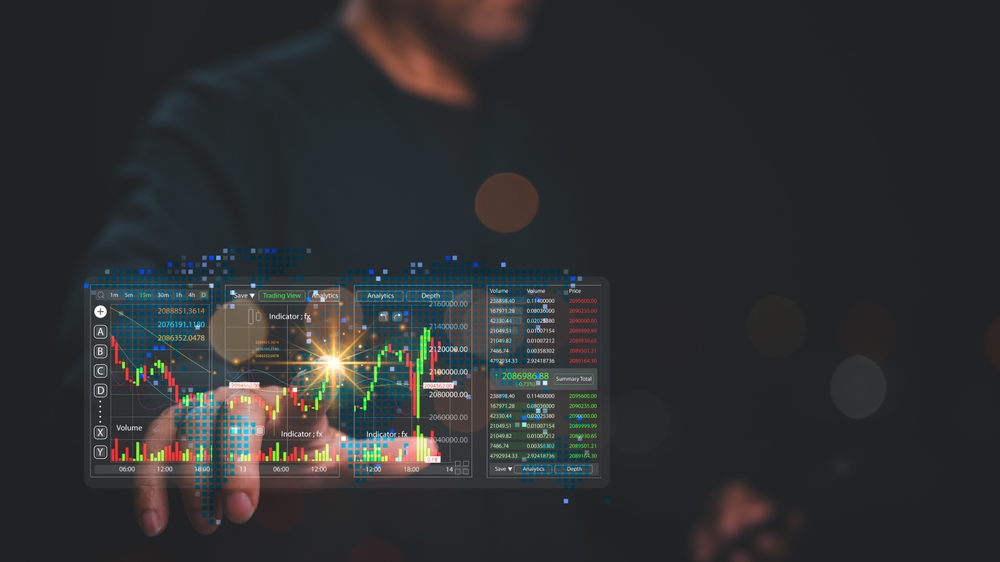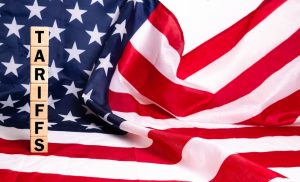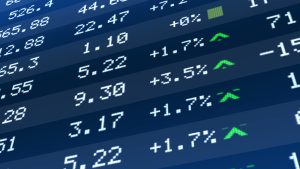U.S. stocks took a significant hit on Wednesday, as Federal Reserve Chair Jerome Powell issued a stark warning regarding the ongoing trade tensions between the U.S. and its global partners. Powell expressed concern that President Donald Trump’s tariffs—unprecedented in modern history—could lead to higher inflation and slower economic growth. This news triggered a 700-point drop in the Dow, with the broader S&P 500 and Nasdaq Composite following suit. The fear and uncertainty surrounding these trade policies are causing ripples through global markets, with investors on edge as the situation continues to evolve.
Market Uncertainty and Tariff Turmoil
Jerome Powell’s remarks about the uncertainty of Trump’s tariffs came as no surprise to Wall Street, which has been grappling with unpredictable trade policies. “The level of the tariff increases announced so far is significantly larger than anticipated,” Powell said at an event in Chicago. The effects of these changes could be more severe than expected, as the tariffs are expected to drive inflation and slow economic growth. Powell’s warning came as the market saw a wave of volatility, with stocks falling sharply across major indices.
For investors, the back-and-forth nature of the tariffs has created an environment of uncertainty that makes it difficult to plan. Powell’s concerns echo those of economists and analysts, as recent consumer behavior—including a surge in retail sales—appears to have been driven by the fear of rising costs due to tariffs. In fact, March saw the strongest monthly retail sales growth in over two years, fueled by consumers rushing to purchase items before prices go up. The shift in consumer purchasing behavior is directly linked to the threat of higher tariffs, and businesses are likely feeling the pressure to adjust quickly.
Nvidia and the U.S.-China Tech Battle
The trade war’s effects are being felt particularly hard in the tech sector. On Wednesday, Nvidia, the semiconductor giant, saw its stock tumble by 6.87% after announcing it would lose $5.5 billion due to new U.S. export restrictions on its AI chips to China. This latest escalation in the U.S.-China trade war is part of a broader battle for dominance in artificial intelligence, with China’s burgeoning AI sector making significant strides. The clash between the U.S. and China, especially in tech, could have long-lasting effects on market stability.
“While we expect that trade talks will ultimately yield progress, the brinkmanship between the U.S. and China looks set to continue in the near term,” said Solita Marcelli, chief investment officer for the Americas at UBS Global Wealth Management. The uncertainty in the tech sector, particularly in semiconductors and AI, adds another layer of complexity to an already volatile market, making it harder for investors to feel confident about long-term growth.
Gold Hits Record as Safe Haven Amid Trade Tensions
As the U.S.-China trade war rages on, investors are flocking to safer investments like gold, which surged over 3% on Wednesday to hit a new record high of over $3,300 per ounce. The precious metal has long been seen as a safe haven during times of economic uncertainty and geopolitical turmoil, and its latest rise underscores growing concerns over the potential impacts of escalating tariffs on global trade. Analysts at Goldman Sachs have raised their year-end price forecast for gold to $3,700, signaling strong demand for the metal amid fears of inflation and economic slowdown caused by tariffs.
Uncertainty Continues to Weigh on Market Sentiment
As the economic effects of the tariffs become clearer, Wall Street remains in a state of uncertainty. “The tariff decisions are what will impact sentiment and equity prices,” said Terry Sandven, chief equity strategist at U.S. Bank Wealth Management Group. The uncertainty is not just affecting U.S. companies but is also having a ripple effect on global markets, as countries worldwide feel the impact of Trump’s trade policies. This uncertainty has led to a shift in investor sentiment, with extreme fear driving market behavior.
Furthermore, the fear of a potential recession is growing, as economic activity appears to be slowing down. “The prospect of a recession has increased with growing indications that economic activity is slowing down,” said Goldman Sachs CEO David Solomon. With major economic indicators showing signs of weakness and continued uncertainty in trade policy, the path forward for both the U.S. and global economies remains unclear.
The Tariff Impact on the Global Economy
While the U.S. stock market showed resilience at times, the impact of tariffs on global trade is becoming increasingly clear. With no end in sight for the back-and-forth between the U.S. and China, market volatility and uncertainty are likely to persist. Investors are cautiously watching for signs of stability or any developments in trade talks that might offer a clearer direction. For now, gold remains a strong bet as a safe haven, and the broader market will continue to react to every new shift in trade policy. With the possibility of a recession on the horizon and tariffs disrupting economic activity, the global economy faces a turbulent road ahead.




















